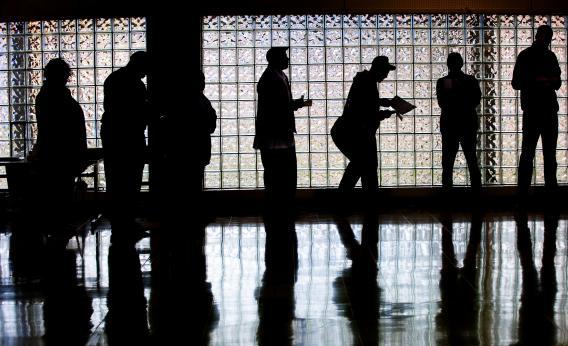It’s been a week since the Supreme Court effectively ended Voting Rights Act pre-clearance. That liberated states with histories of voter discrimination (in some cases, ancient histories) from having to ask the DOJ to sign off on voter laws, districts—anything affecting representation.
And so North Carolina, which has been pushing through conservative legislation as if trying to win a bet, is gearing up for some deconstruction of the state’s current, liberal electoral statutes. The vehicle is an “omnibus voting rights bill” being moved by the chairman of the state Senate’s rules committee, Tom Apodaca. Clues to its contents: “an end to the state’s early voting, Sunday voting and same-day registration provisions,” likely to be released after this Fourth of July weekend.
Let’s say the state nixes early voting, or even just rolls it back in some capacity the way Florida did before 2012. Reid Wilson explains what would be affected:
More than 1.2 million Democrats cast ballots during the 17 days of early voting in 2012, while about 800,000 Republicans did the same. African American voters were more likely to cast a ballot during the early period than they were on Election Day, according to statistics compiled by the United States Elections Project at George Mason University.
The numbers couldn’t be clearer: In 2012, blacks accounted for just 8.7 percent of absentee ballots cast in North Carolina, while whites accounted for 86.4 percent. Blacks accounted for 28.9 percent of all early votes cast; 65.8 percent of early votes were cast by white voters.
Obviously, before early voting was put into place, black voters could show up on Election Day; for decades upon decades, a coalition of whites and blacks put Democrats in charge of the state legislature and governor’s mansion. But every political move taken by the new Republican legislature, since 2011, has been aimed at packing liberals and black voters into as few districts as possible, creating a conservative majority for, they hope, at least a decade.
North Carolina’s black liberal activists have tried to slow down the bills by attrition, with the now-famous “Moral Monday” protests in the legislature. Apodaca, asked about the last protest, called it “crap.” Not to be cynical or anything, but if there is a growing understanding that Republicans can win the future if they ignore minority voters and maximize their base’s influence, North Carolina’s going to figure it out first.
Correction, July 3, 2013: This post originally misspelled Tom Apodaca’s last name and said he was chairman of the judiciary committee, not the rules committee.
